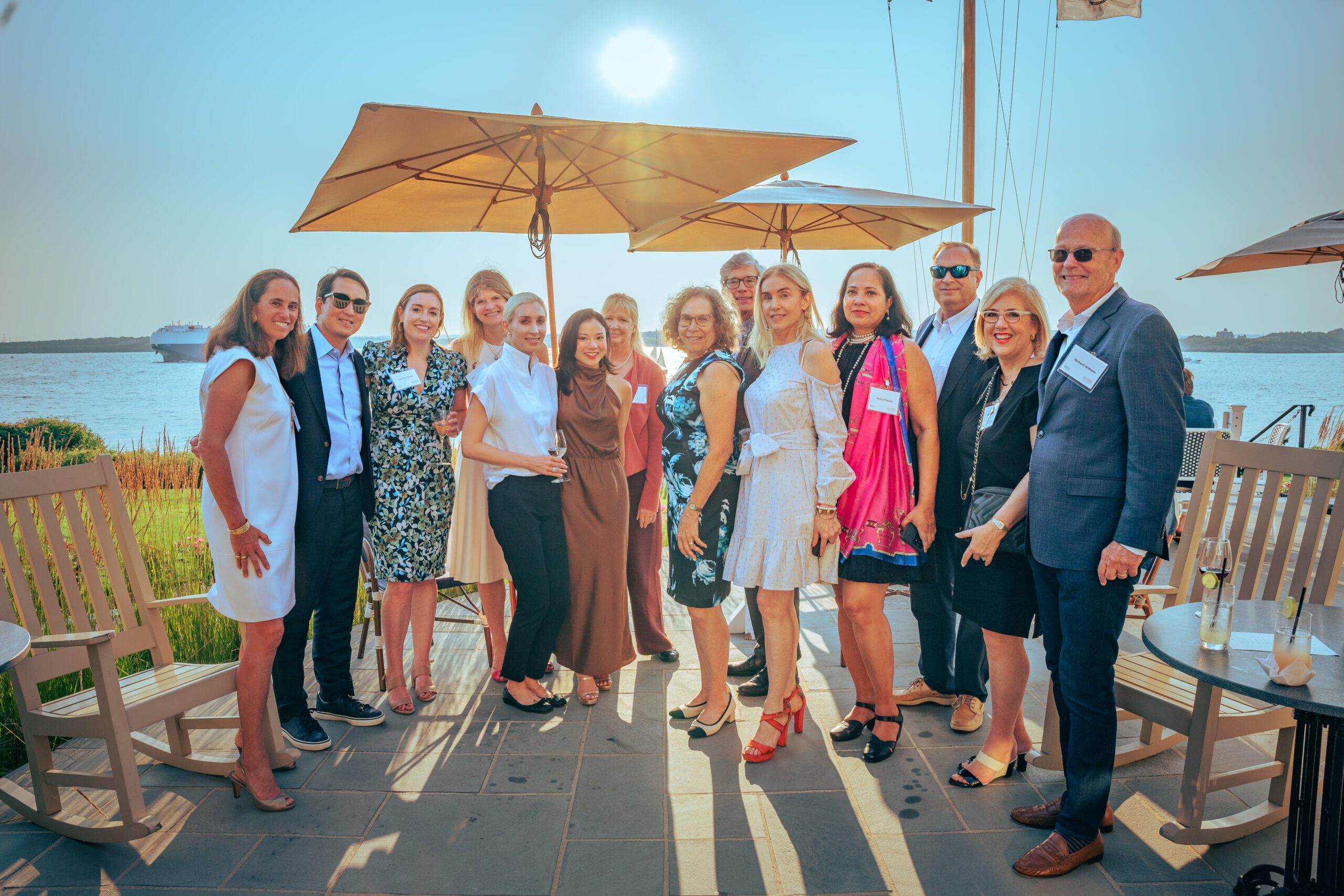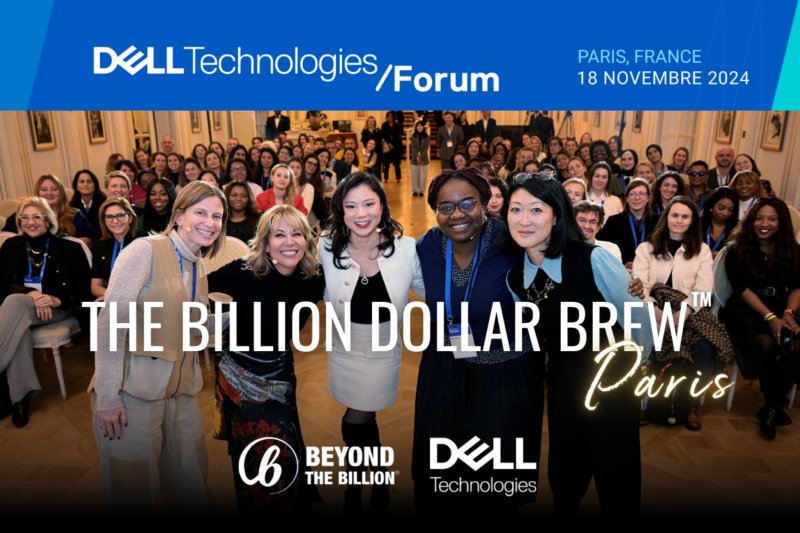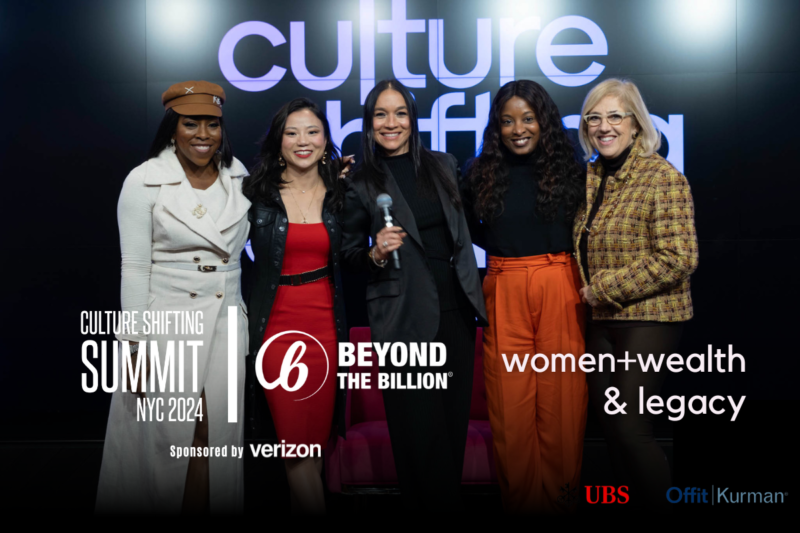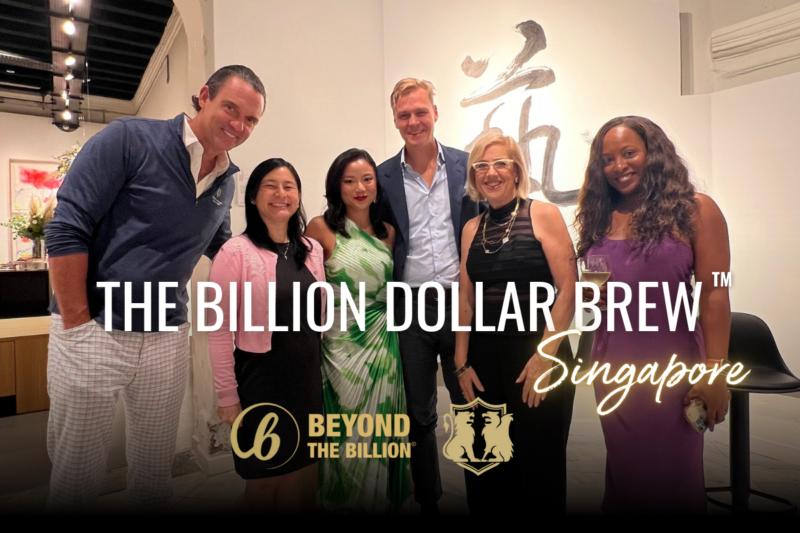James Rhee framed the tangible value to goodwill, and truly, the proof was right there in the room: our dinner was over-capacity; filled with thoughtful, intentional investors and we couldn’t be more grateful.
Some of our actionable takeaways from James Rhee’s keynote were:
In viewing investing with a lens of impact: ask how can this be a form of arbitrage beyond philanthropy?
As demonstrated in James’ experience in turning Ashley Stewart around, there is a process in unleashing and operationalizing kindness, both in one’s self and one’s organization. It requires systems thinking and unlearning. Once unleashed, creativity and clarity become so intertwined and so effortless; and it is not long that you realize that so many of our “fancy” conventions of measurement and leadership drive the type of results that are undermining long term sustainability of humanity. And yes, your margins will increase, as will market share.
And from our panel featuring matriarchs building multi-generational wealth with purpose:
With the great transfer of wealth we will be seeing in our lifetimes, over $32 trillion—and women inheriting most of it at over $22 trillion, it behooves us to consider the kind of purpose-driven investments we need to make into women-founded companies solving some of our most intractable problems, even as they outperform other scalable enterprises, with earlier exits and higher valuations per dollar invested.
Dana Dornsife, Founder, Lazarex Cancer Foundation | Dornsife Family
Never underestimate your own ability to create change: Dana was called to the work in Lazarex by the dire experience of a dear relative who unfortunately passed from pancreatic cancer. She saw real problems in the system where access to healthcare was limited to those who had the power of the check. Since then, her foundation has impacted thousands of cancer patients, and she’s solving the disconnect that we have between patients who need trials to live and trials who need patients to succeed.
Where the lack of diversity in clinical trials is real, Lazarex achieved 63% minority participation compared to the national average of 5%, with 52% of those individuals coming from households earning $25,000.
Engaging our children in deploying purposefully is how we inspire change: wealth and capital are both a privilege and a tool which we can use to address the issues we care most about. As important as deploying it ourselves, is ensuring that the next generation is educated to do so, too.
Dune Thorne, Chief Strategy Officer, Brown Advisory | Thorne Cox Family Foundation
Our role as leaders building enabling environments: how do we go a step further to really create enabling environments with our capital and influence?
Dune stressed the ability we all have to create inclusive cultures where everyone at the table can bring their best selves and best ideas. After spending 25 years working on this, it’s clear that what is needed is changing cultures, by diversifying our own networks even by those whom we choose to invest, to mentor. And in passing on this awareness to our children, the most powerful thing we can do is to set an example and engage them in the process.
On ESG under scrutiny, we must stay focused: Brown Advisory now has data from over two decades that show investor returns have been better because ESG has helped identify companies with the right fundamentals, with revenue loyalty hence reducing cost and risk. So while it can be disheartening with the current scrutiny, she’s hopeful that this will weed out those not truly being true to the values of ESG.
There is no better way to teach our children than to set an example. By practicing what we preach, we make an impact on them that is indelible and will set a course for their better future.
Drive Returns Through Diversity with Us #investinwomen
Take the Pledge: [email protected]
Partner with Us: [email protected]
Invest with Us: [email protected]
Some moments from the event:
In Partnership with Brown Advisory










